Life with a doggo means you’ll most likely encounter canine vomit at least once.
Gross, smooshy, and the last thing you want to find with your bare foot, dog vomit is generally food-filled mishmash. But sometimes, it appears to be mostly water.
What the floof, right?
Below, we’ll tackle the stomach-churning issue of your dog vomiting water (or what appears to be water) and let you know when to worry, when to visit your vet, and what you can do to help your pukey pooch feel better.
My Dog Is Vomiting Water: Key Takeaways
- Just like people, dogs vomit from time to time. And while vomiting should always cause you to stop and take stock of your pup’s health, it isn’t always a big deal that requires an emergency trip to the vet.
- In some cases, your dog’s vomit may be primarily comprised of water and other liquids. Technically, this is often an example of “regurgitation” rather than vomiting, as the material is usually expelled passively, from the upper portions of the digestive tract.
- There are a number of reasons your dog may vomit water, including drinking too fast or being too active too quickly after drinking. However, health problems or the ingestion of dangerous substances can also trigger your dog to vomit water, so you’ll want to watch your pooch closely.
First Things First: The Difference Between Vomiting and Regurgitation
We need to have a bit of terminology lesson first, as many dogs who “vomit water” are actually regurgitating. Have no fear if you’d misused the words in the past, as vomiting and regurgitation are often confused with one another.
So, how do they differ?
For one, vomiting is the expulsion of food location deep within the GI tract, whereas regurgitating is spitting up food or water that’s recently been ingested.
You’ll also notice a difference in the act, since vomiting is more violent with noticeable retching while regurgitation is more passive with food typically expelled gently or “spit up.”
Not to be gross, but there’s a clear difference in the contents expelled in vomiting and regurgitation, too.
When regurgitating, your dog will spit up undigested food or water, and the mixture is often watery. With vomiting, the expelled product may contain partially digested food and can be a variety of colors, though it’s usually clear, green, or a hue similar to your pup’s food.
Got a sloppy drinker on your hands? Check out these no-spill water bowls!
What Does It Look Like When Dogs Vomit or Regurgitate Water?
When your dog vomits up water, he produces a mostly clear fluid that contains water and stomach fluids. Sometimes, it may include mucus, foam, or food remnants, too.
It’s important to note that clear vomit isn’t always water, however, and it could include clear liquids (including potentially dangerous ones) that your dog’s system can’t digest. This makes determining the root cause of your dog’s vomiting or regurgitation important to rule out illness.
Why Do Dogs Vomit or Regurgitate Water?
Finding out why your pup is spitting up water is a must, not only to save your floors and cleaning products but to also ensure nothing major healthwise is going on with your pooch.
Your dog may vomit or regurgitate water for “typical” reasons, like:
- Ingesting spoiled food
- Eating something toxic
- Food sensitivities
- Eating too quickly
- Illness
Your dog may also vomit water after drinking too much too fast or after running around too soon after drinking a lot of water.
This is often seen with doggos who love chasing the hose or playing in the sprinkler, and while it’s great to let him have his fun, it’s important to make sure he’s not making himself sick (literally) in the process.
When Is Vomiting or Regurgitation Serious? When Do You Need to Go to the Vet?
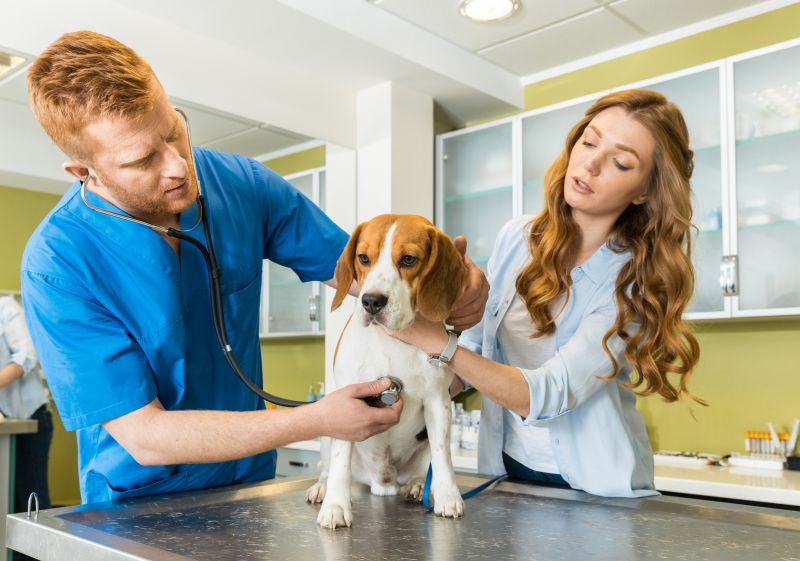
The good news is, in most cases, occasional vomiting and regurgitation aren’t indicative of serious problems. Like us, sometimes dogs have a bout of sour stomach. You still want to take note of the symptom, however, and examine what exactly your dog is throwing up to make sure it’s nothing worse than a tummy ache causing it.
When assessing your dog, keep some key markers in mind, including:
- Frequency: If your dog vomited once and is acting normally with no other symptoms, he’s probably fine, though he should still be monitored. If he’s vomiting repeatedly and can’t keep anything (including water) down, contact your vet at once.
- Behavior: Keep an eye out for a change in behavior, such as lethargy or excessive thirst. Sometimes, doggos can be stealthy with these, so it’s important to really pay attention. Any changes should be reported to your vet.
- Additional symptoms: Vomiting on its own can be troubling enough, but if your dog is also experiencing diarrhea, shaking, or excessive drooling, it’s time to get him to the vet.
- Vomit appearance: Any sign of blood in your dog’s vomit is cause for concern and requires a vet visit.
- Production: If your dog is trying to vomit but producing nothing, this is also cause for concern and warrants a trip to the vet. Dogs that are drooling, pacing, or restless may be experiencing bloat, a life-threatening condition.
- Age: Older dogs and puppies (especially unvaccinated puppies) are more fragile and should be closely monitored for signs of dehydration.
It’s important to trust your own intuition, too. You know your dog better than anyone, and if something feels off, call your vet.
Don’t have easy access to a vet? You may want to consider getting help from JustAnswer — a service that provides instant virtual-chat access to a certified vet online.
You can discuss the issue with them, and even share video or photos if need be. The online vet can help you determine what your next steps should be.
While talking with your own vet — who understands the ins and outs of your dog’s history — is probably ideal, JustAnswer is a good backup option.
What Do I Do After My Dog Vomits or Regurgitates Water?
Seeing your dog vomit water is alarming, but generally, your pupper patient will most likely be fine with a little TLC if he’s not exhibiting any major symptoms.
Your natural reaction may be to take away all drinking water, but it’s important to still give him access to small quantities of water while he’s recovering — your dog will need to rehydrate after vomiting.
But, while he should still be allowed to drink, you’ll want to limit it to small amounts of water at a time rather than letting him slurp down a lot at once. This may mean offering his water bowl for a few sips and then restricting it for 10 to 15 minutes before allowing him to have another drink.
If your dog’s stomach trouble is caused by illness or maybe a batch of treats that didn’t sit well with him, you may want to withhold food for 12 to 24 hours (depending on your vet’s advice.) Other times, you can offer him food, but it should be a GI-friendly mixture that’s suitable food for a dog with an upset stomach, such as boiled chicken and rice or a GI food from your vet (which is designed to be super-easy to digest). As with water, make sure you offer smaller amounts of food rather than his typical portion to ease his stomach back into business.
Also, as tempting as it may be to give your dog something to help make him feel better, avoid administering Pepto Bismol, Imodium, Tums, or any other medications unless your vet instructs you to do so.
It’s also important to give your pooch the five-star pupper patient treatment with lots of rest and preferably some rubs for being a good boy. Try not to let him run around too much and keep him calm so he doesn’t work his tummy back up into a tizzy again.
As with any illness, monitor your dog and report any changes to your vet.
How Can I Prevent My Dog From Drinking Too Much and Vomiting Up Water?
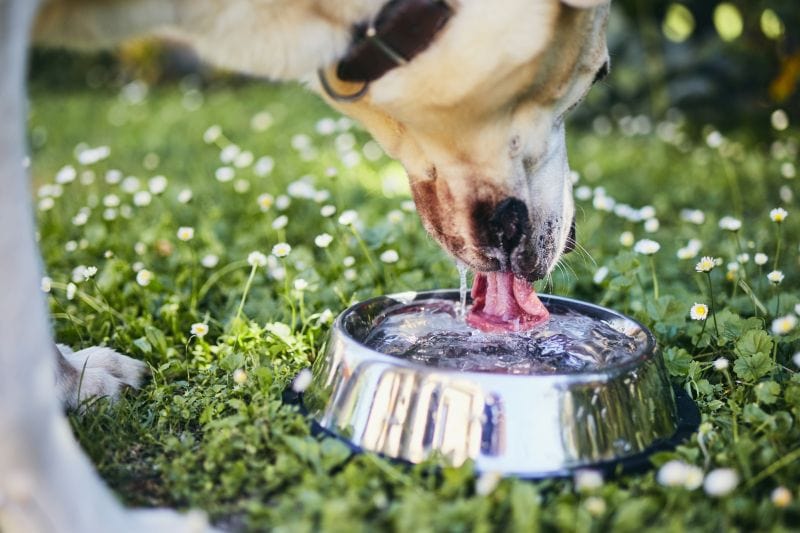
If your dog’s upset stomach is caused by him drinking too much too fast, it’s essential to dial things down to prevent serious complications, such as bloat, hyperhydration, or repeated vomiting. Luckily, the fix isn’t too hard.
To stop your dog from drinking too much at once, try:
- Bowl swap: If your dog has a refillable water jug or fountain, it may be best to exchange it for a smaller bowl until he gets his excessive water drinking under control.
- Temperature change: Some dogs love to chug cold water. In these cases, switching the cold water to lukewarm water can slow his slurping.
- Water bowl extras: On the flip side, adding ice cubes to your dog’s bowl may slow his drinking. The temperature shift and floating additions can be off-putting for dogs that like to suck down a bowl of water in one sitting. Use caution here though, because some dogs may like icy additions even more.
- No hose play: We know it’s hard, but if your dog always makes himself sick with the hose or sprinkler, it may be time to limit or cut out the activity entirely.
Always report any excessive drinking to your vet to rule out underlying conditions, such as diabetes, Cushing’s, or kidney disease.
***
Has your dog ever vomited water? How did you work through the issue together? Let us know in the comments!
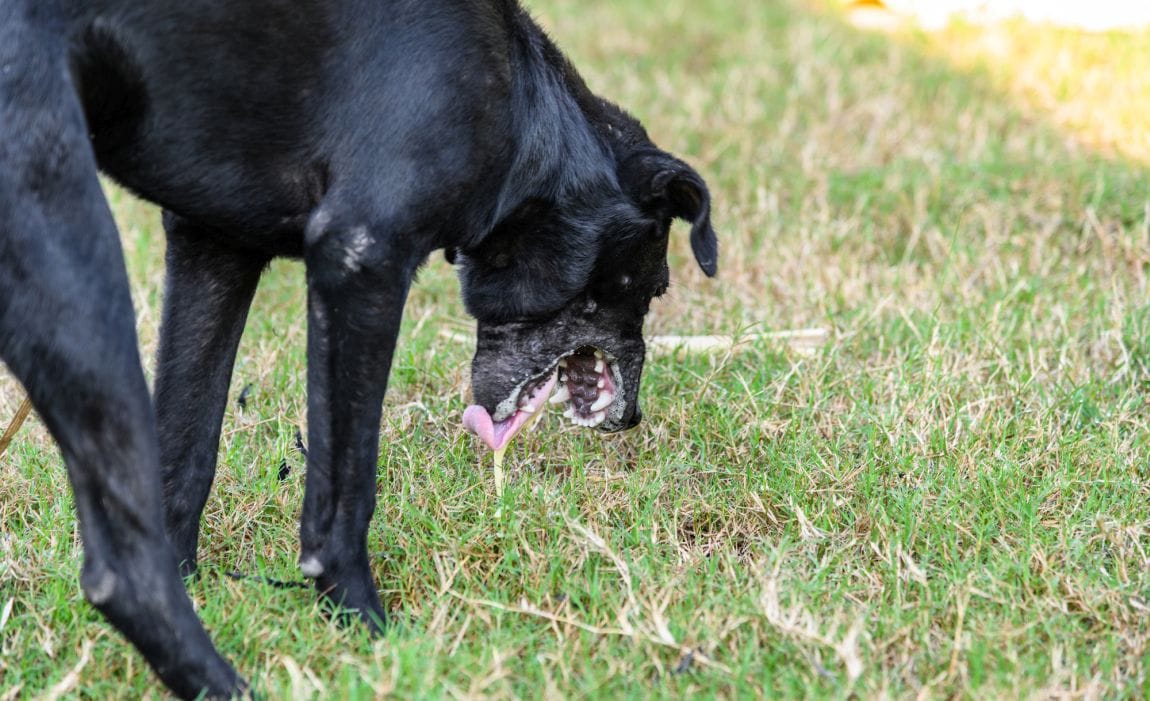


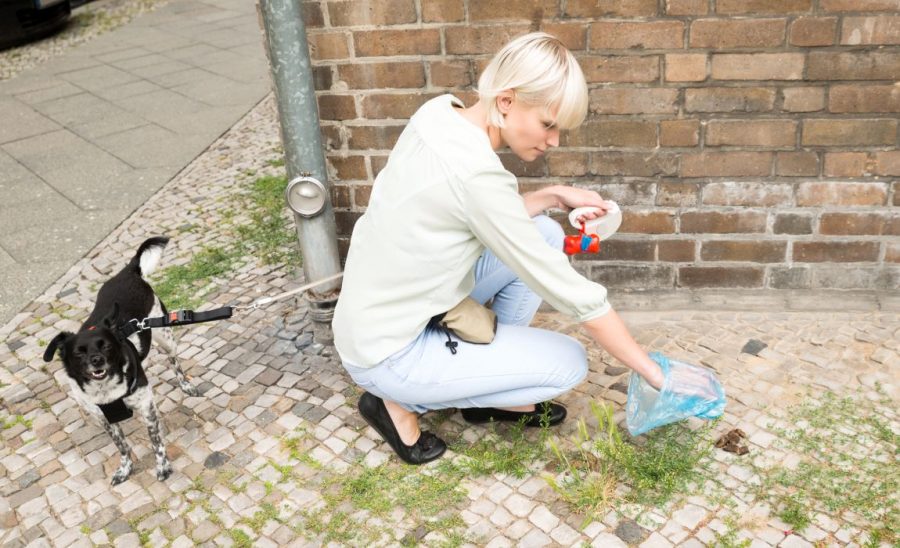


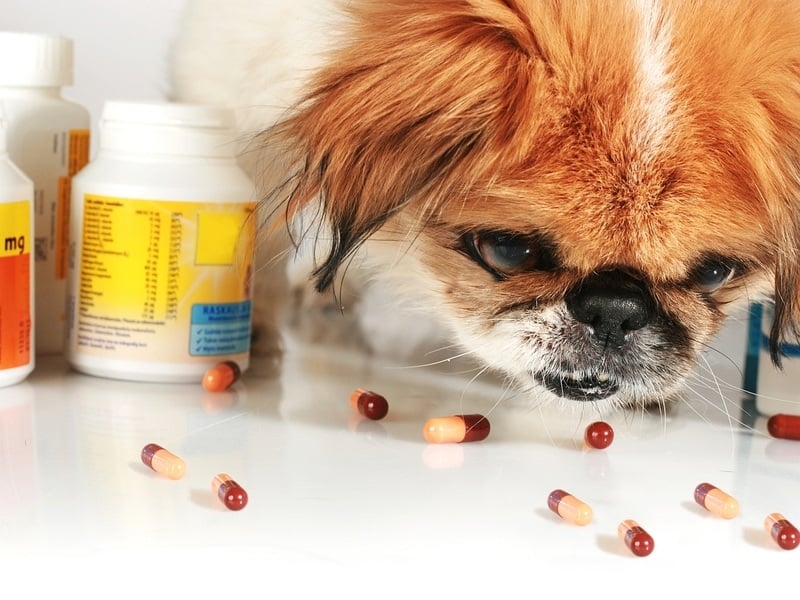
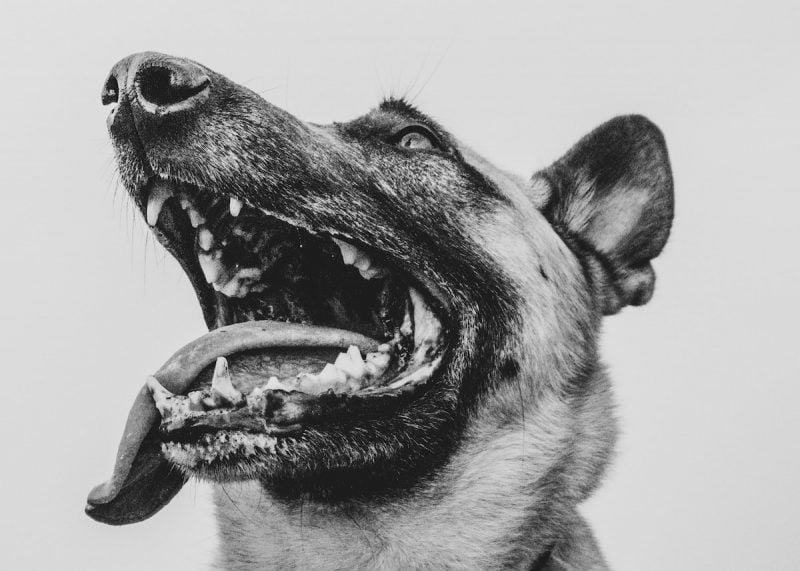
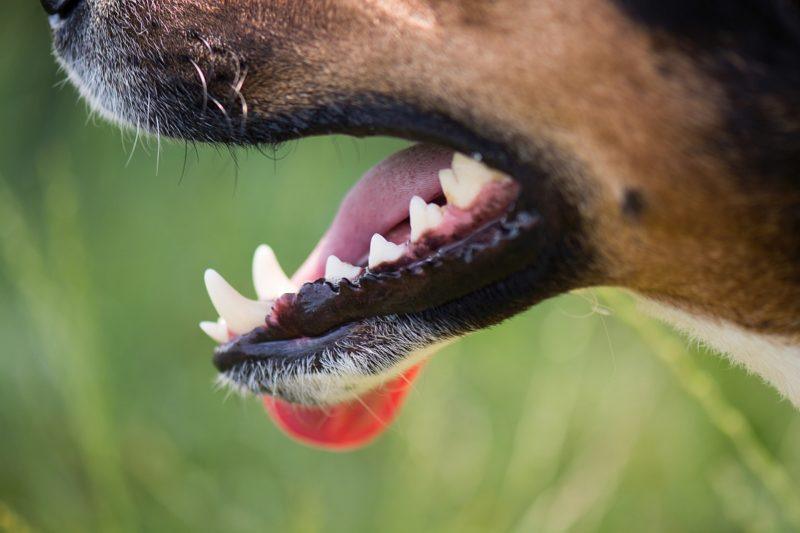
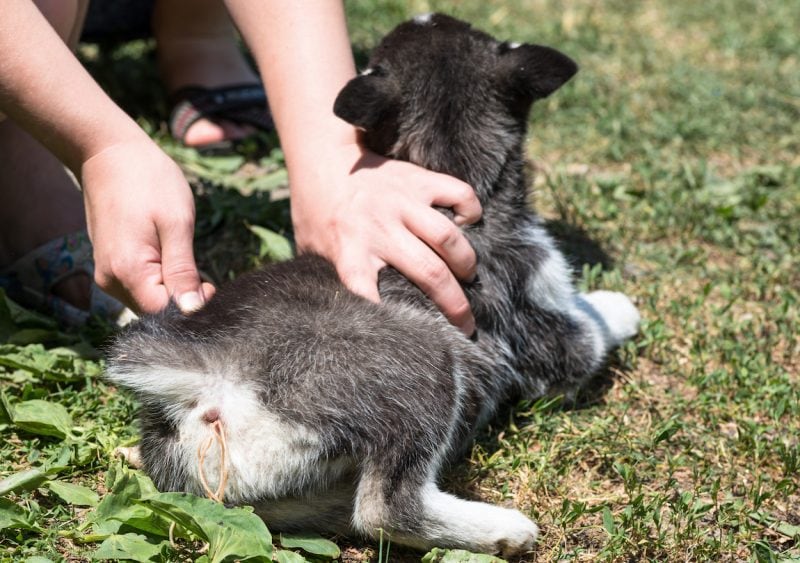
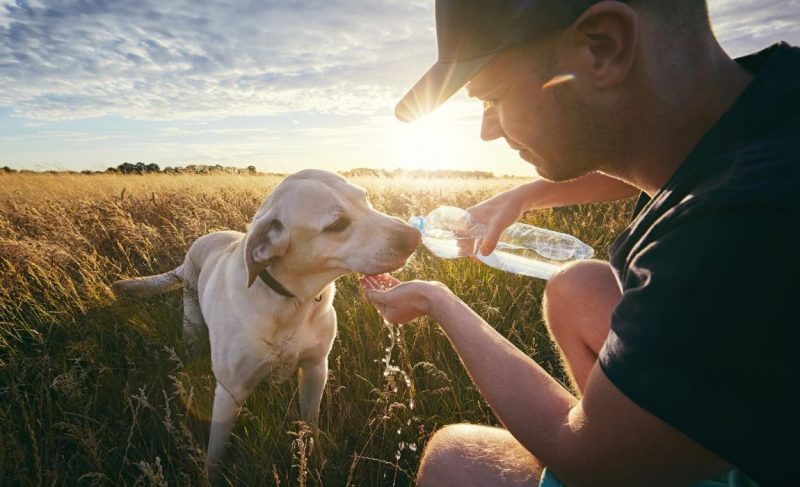
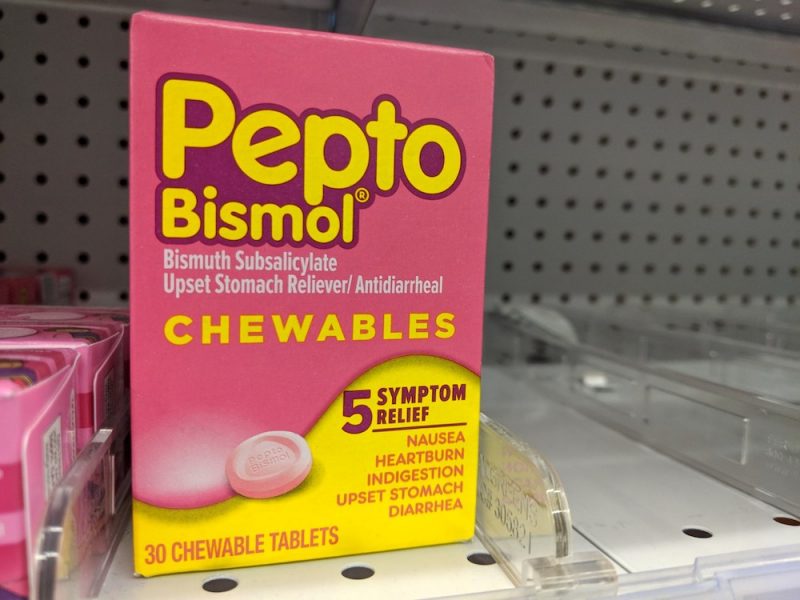
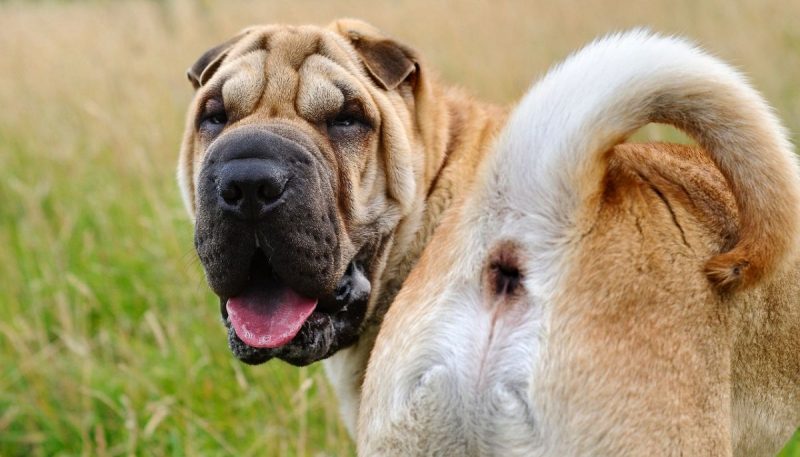

Leave a Comment